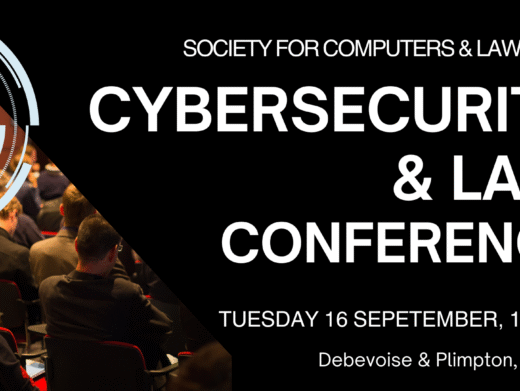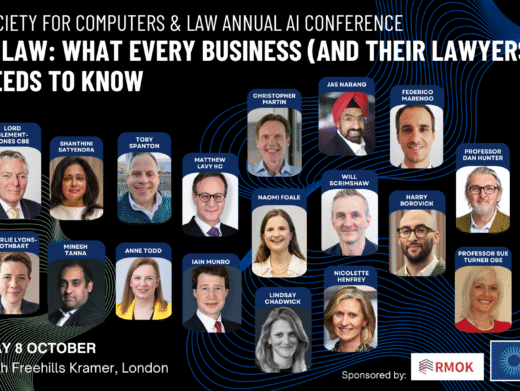UK law
Regulating quantum technology applications government response to the RHC
The UK National Quantum Strategy was published in 2023 and aims to “create a national and international regulatory framework that supports innovation and the ethical use of quantum technologies, and protects UK capabilities and national security”. The previous government commissioned the Regulatory Horizons Council (RHC) to review the future needs for quantum technologies regulation to enable the sector to innovate and grow. The RHC published its review in February 2024 and the new government has now published its response. It welcomes the publication of the report and supports the RHC’s recommendations. It agrees that it is too early to establish regulatory requirements and legislation for quantum technologies given the nascency of the sector, but sustained action is required now to increase regulatory capability and enable a sector- and application-specific approach to regulating quantum technologies in the future. Taking an approach that is transparent, collaborative, and evidence-based aims to ensure that regulation plays an enabling role in supporting the development of quantum technologies, providing assurance and confidence across the ecosystem, and de-risking innovation and investment. The proposed response reflects the stage of development of each type of quantum technology and will be kept under review as they progress through technology readiness levels. The Office for Quantum will work to prioritise delivery of the proposals.
ICO issues report on quantum technologies
The ICO says that it is committed to supporting quantum technology innovation in a way that protects people’s personal information and fundamental rights. Through its work on emerging technologies, its priority has been to build its understanding of the technology and how it may affect people’s privacy. It has now issued a report which explores emerging possibilities for quantum technology involving personal data and looks at quantum computing and communications, to quantum sensing, timing and imaging. By identifying the privacy and data protection implications of emerging technologies now, the ICO says that it is better placed to enable innovators to consider data protection in development. It says that quantum computers could one day break widely used cryptographic algorithms that help protect everything from personal data to national security information. While quantum computers powerful enough to do this may be many years, or even decades away, the process of preparing for such a shift has already begun. The main proposed approach to addressing the risk is post-quantum cryptography.
ICO issues £120k fines to two companies for predatory marketing campaigns
The ICO has fined two companies for making unlawful marketing calls to individuals registered with the Telephone Preference Service. The calls were made to people who had explicitly opted out of receiving marketing communications, violating their privacy and in some cases causing significant distress. The ICO says there is clear evidence that in both cases, older people and those living with illnesses such as dementia were targeted. Some individuals were subjected to repeated phone calls, attempting to pressure them into buying warranties for white goods, such as fridges and washing machines, that they did not need. One of the companies has appealed the ICO’s decision.
ICO issues data protection audit framework
The ICO has issued a data protection audit framework. It aims to help organisations assess their own compliance with some of the key requirements under data protection law. It covers a range of areas that the CO looks at when it assesses an organisation’s data protection compliance using the ICO’s audit toolkits to conduct both consensual and compulsory audits.
Court of Appeal dismisses appeal against the denial of an interim injunction against Ericsson
In Lenovo Motorola Mobility LLC and another v Ericsson Ltd and another [2024] EWCA Civ 1100, the Court of Appeal dismissed an appeal against an order which denied Lenovo’s application for an interim injunction to restrain Ericsson from infringing a Standard Essential Patent (SEP). The first instance court had applied the principles in American Cyanamid and decided that damages would be adequate compensation for Lenovo if the SEP were infringed. The Court of Appeal considered that the first instance judge was correct to reach that conclusion. It also confirmed the application of the American Cyanamid principles in SEP disputes. The decisions of the UK court are of particular significance in Fair, Reasonable, and Non-Discriminatory (FRAND) cases, as it is one of the few jurisdictions in which courts may set global FRAND terms. The court confirmed that, generally speaking, SEP holders committed to FRAND terms are not entitled to injunctions against a licensee that is willing to take the court-determined licence.
UK government issues call for evidence on common charger
The UK government has launched a call for evidence about introducing a common charger in the UK The EU has adopted legislation which will require the use of USB-C based chargers for mobile phones and other portable electrical/electronic devices placed on the EU market from December 2024. The UK government considers that it would potentially help businesses and deliver consumer and environmental benefits if it introduced standardised requirements for chargers for certain portable electrical/electronic devices across the UK. It seeks views about whether it would be helpful to do so and if the UK should adopt the same standard as the EU. The aim of the call for evidence is gain views on the potential impacts of introducing these measures. The responses received will inform the final position and the detail of any potential secondary legislation.
UK and US enter into online safety agreement
The UK and US governments have agreed to set up and launch of a new joint children’s online safety working group. Currently there is limited research and evidence on the causal impact that social media has on children and young people. Once established, the group will work on key areas including promoting better transparency from platforms and consider researcher’s access to privacy-preserving data on social media, helping to better understand the impacts and risks of the digital world on young people, including new technologies like generative AI. This will build on the work between the UK and international partners to help ensure safety is built into technology from the start to help deliver a more secure digital world for young people. The UK’s Online Safety Act places duties on online platforms to protect children’s safety and put in place measures to mitigate risks. The Technology Secretary met with Ofcom Chief Executive Melanie Dawes earlier this week to receive an update on how the regulator is progressing with getting the Act’s protections in place.
EU law
Order to produce evidence in FRAND-related case
In Guangdong OPPO Mobile Telecommunications Corp Ltd and another v Panasonic Holdings Corporation ORD_48652/2024 the Court of Appeal of the Unified Patent Court refused a request under rule 190 of the UPC Rules of Procedure for an order to produce evidence in a claim of infringement of standard essential patents when that evidence was in connection with FRAND-related issues.




